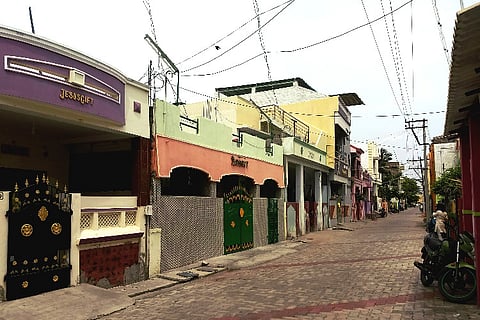

Even as the coastal district of Thoothukudi was in the throes of a protest and police firing on May 22, the Tamil Nadu government invoked the Temporary Suspension of Telecom Services(Public Emergency or Public Safety) Rules less than 24 hours later, cutting off broadband and mobile data services in three southern districts.
While India has been notorious for internet
According to Access Now, an international non-profit that fights for a free and open internet, an internet shutdown is an “intentional disruption of internet or electronic communications, rendering them inaccessible or effectively unusable, for a specific population or within a location, often to exert control over the flow of information.”
On May 25, two days after the move, the Madurai Bench of the Madras High Court slammed the rationale of the state government in imposing an internet shutdown in not just Thoothukudi but also in the neighbouring districts of Tirunelveli and Kanyakumari. The court asked, “With the Internet ban in Thoothukudi, no one will be able to spread rumours or send message to other regions nor any messages sent from outside will reach the people of Thoothukudi. So why unnecessarily impose the ban in Tirunelveli and Kanyakumari region?”
Anxious families
Outside the home of 17 year-old Snowlin, who was killed in the police shootings, anxious family members were struggling to get updates on the status of her body. While the court had asked for the body to be preserved, families alleged that they were asked to sign off on post mortem reports.
“They have just shown the body. We have not received any more information. Usually we get information from someone or the other at the General Hospital. But we don’t know what is happening until we travel back and forth,” said Brutus, Snowlin’s uncle.
Without WhatsApp, information sharing in the town came to a halt, forcing grieving parents to run around looking for mobile recharge shop owners to top up their phones in order to make calls. Making matters worse, a day after the shootings, Section 144 of Criminal Procedure Code was clamped down forcing businesses to shut down and residents to stay indoors. Apart from a few pharmacies that opened well into the evening, most shops in the town remained shut.
Missing persons
Speaking to TNM, S Raja, a resident and member of the merchant’s guild in the district said, “Lot of the people who went to the protests are still missing. Usually we will put their photo and share on WhatsApp to ask if they have been seen. But now parents are too scared and don’t know what to do.”
Following the internet shutdown, videos emerged of policemen dragging young men out out of their homes in the dead of the night. But after the internet shutdown, it became almost impossible for an aware citizenry to share the documented proof with others.
Responding to reports of illegal detentions of young men and school boys at a press conference on May 24, IG South Zone Shailesh Kumar Yadav said that he was not aware of such detentions. In an interview to The Hindu, human rights activist Henri Tiphagne alleged that students were illegally detained at the Thoothukudi South police station.
Economic loss
Raja and his fellow traders complain that business also took a hit with no digital transactions or billings they could perform as broadband services too was disconnected. While a solatium has been announced for families of those who have been killed and injured in the police shootings, the traders lament that their loss of business will go unaccounted for.
An April 2018 study by Indian Council for Research on International Economic Relations concluded that between 2012- 2017, the Indian economy took a three billion dollar hit on account of internet shutdowns.
According to an Indian internet shutdown tracker by the Software Freedom Law Centre, this is a first for Tamil Nadu. An internet shutdown has only been reported only once before in South India during clashes between Adivasis and Lambadas in Asifabad district in Telangana in December 2017.
Women and safety
The directive issued by the Chief Secretary on the internet shutdown stated, “It has been brought to the notice of the government that some people died in police action during the protest against Sterlite factory at Thoothukudi on May 22, which saw 20,000 people assemble and involve in violence and that this mass gathering of people was achieved mainly through the information passed via social media.”
The direction also stated that “provocative messages spread in social media with ‘half truth' and anti-social elements are trying to exploit the situation.”
While protests are largely organised through mobilising on social media, March 22 marked the hundredth day of a long ongoing protest.
For women and trans persons, who were demanding answers outside the Government General Hospital on March 23, a day after the shootings, their phones served as the only reliable medium of information. With palpable anger against the media, their connectivity to the internet was key to presenting their arguments against the Sterlite plant.
As internet researchers Rohini Lakshané and Chinmayi SK of the Bachchao Project observe in their study of internet shutdowns, such shutdowns take a toll on women who feel a heightened sense of security with the use of mobile phones. The lack of service "caused the respondents to feel vulnerable and anxious over their own safety and that of their near ones."
With internet facilities in the district restored late on Sunday, the district was still reeling from the loss and mental anguish that the events of the past week had plunged them into.
"We could start using internet from Sunday night but what we have lost is gone forever. We cannot be compensated for it. We were scared, things were uncertain and we didn't know who will come knocking when," says Raja.